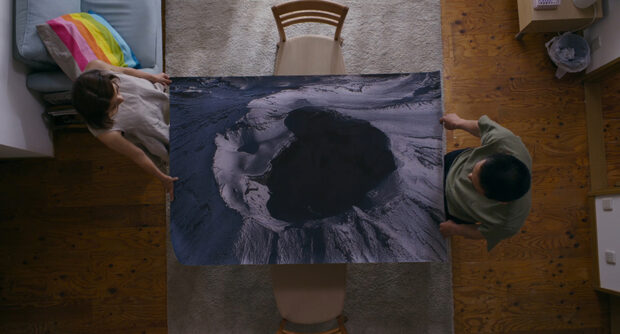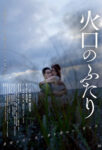Despite only four credited films as director, Haruhiko Arai has been an important writer and academic in the Japanese industry for over half a century. Beginning with Japanese New Wave film Gushing Prayer: A 15-Year-Old Prostitute (1971), he has continued to deliver important screenplays for other directors, most recently Yukiko Mishima’s Dear Etranger (2017).
IT FEELS SO GOOD (火口のふたり) is Arai’s first directorial outing since war movie Kono kuni no sora (2015). It follows Kenji (Tasuku Emoto) who meets up with his cousin, and former lover, Naoko (Kumi Takiuchi) while in town for her pending wedding. After proposing a one-night stand, their physical relationship becomes a week-long exploration of each others bodies and their shared past.
On the surface, Arai’s film feels like it is going to be tried-and-true exploration of a relationship through sex and physicality. In this sense, it’s a successor to the ‘sex and death’ films of the 60s and 70s that Arai was involved in, picking up where Nagisa Ōshima’s contemporaries left off and exploring the same fatalism for a whole new generation.

Indeed, it’s that generational divide that separates this from its forebears. Like a couple of Kelly Reichardt characters (think: Old Joy), this duo typifies twin aspects of a group growing up with a looming dread of the future. Kenji takes each day as it comes, Naoko operates with a sense of urgency about what she leaves behind.
The film’s title more literally translates as ‘two craters,’ as if to imply that we are looking at the remains of a disastrous impact. In a way this is the literal truth. Like many Japanese films of the last few years, it explores the ripple effects of the 3/11 tsunami and Fukushima Daiichi plant disaster of 2011. Kenji remains underemployed, while Naoko’s unseen husband is a career military man preparing for a pending catastrophe that will set their futures in stone.
It would be a mistake to consider Emoto and Takiuchi’s performance as a purely physical one, even if they spend much of the film in the buff. While many scenes are filled with intensely intimate and often frantic sex, Arai deliberately saves the most revealing conversations for when they are partially covered or clothed.
The final act begins to contemplate the futility of planning in a post-Fukushima world. Tokyo has always lived under the threat of the ‘next big one’ and here that dread becomes tangible within the microcosm of this closed world. Think In the Realm of the Senses without the intense claustrophobia or bloody ending.
IT FEELS SO GOOD is a film that completely envelops you while you are in the moment. Yet like the volcanic forces of Mt. Fuji – arguably the third central character in the film – there is more that lurks beneath the surface. The impact that it may have in the future is yet to be seen.
2019 | Japan| DIRECTOR: Haruhiko Arai | WRITERS: Haruhiko Arai, Kazufumi Shiraishi | CAST: Tasuku Emoto, Kumi Takiuchi | DISTRIBUTOR: JAPAN CUTS (US)| RUNNING TIME: 105 minutes | RELEASE DATE: 17-30 July 2020 (JAPAN CUTS)






